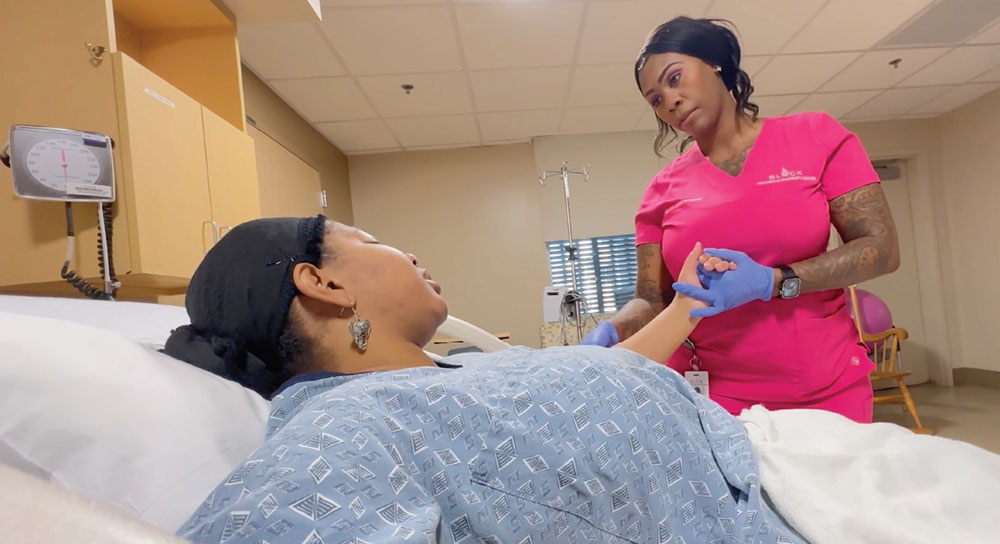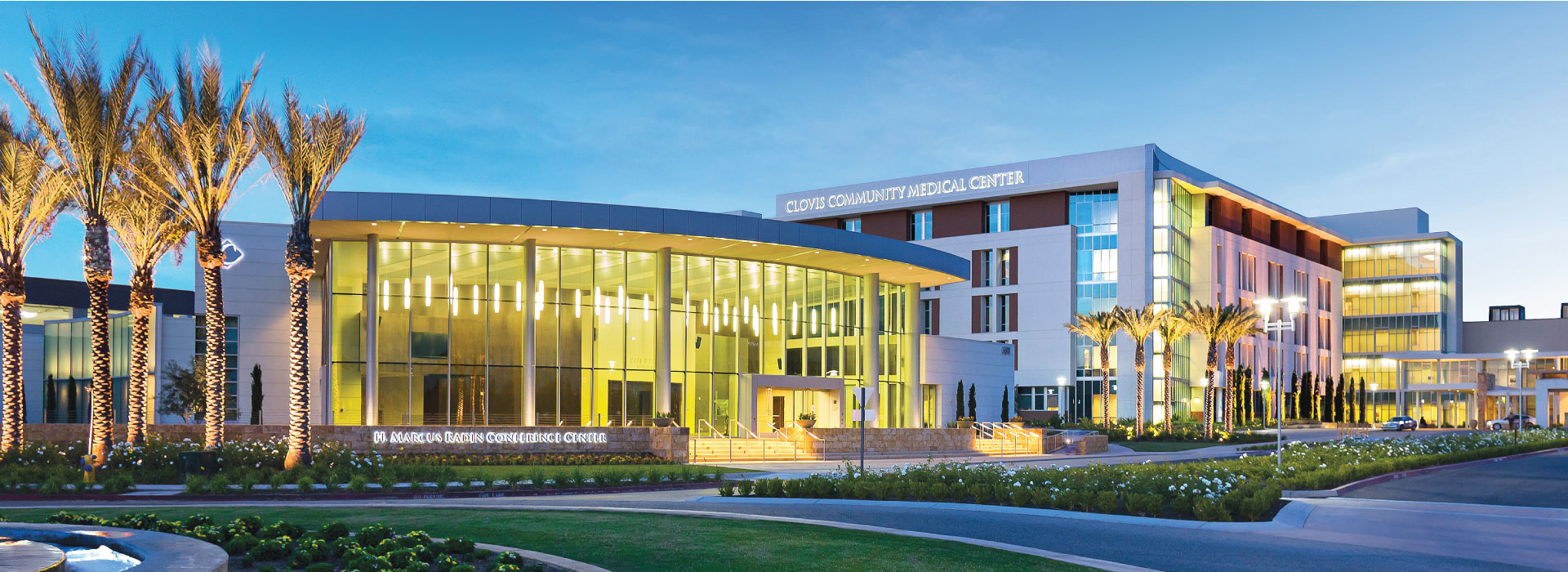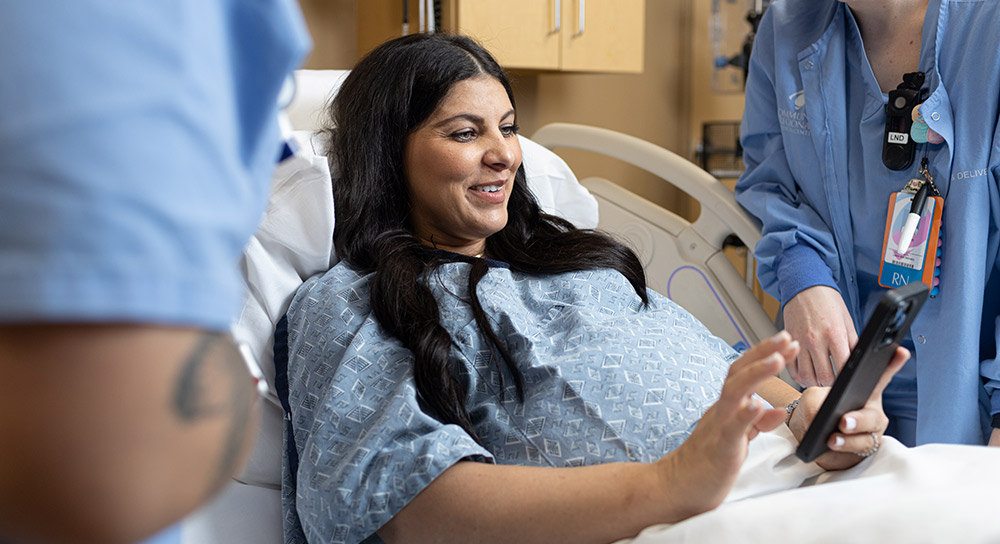 More than 40 bariatric surgeons from around the world came to Fresno Heart & Surgical Hospital this month to examine the benefits of sleeve gastrectomy – a weight-loss surgery that has become a mainstream tool in the fight against the disease of obesity and diabetes. Developed initially as part of a two-step duodenal switch procedure, a form of gastric bypass surgery, the sleeve gastrectomy has become a stand-alone operation.
More than 40 bariatric surgeons from around the world came to Fresno Heart & Surgical Hospital this month to examine the benefits of sleeve gastrectomy – a weight-loss surgery that has become a mainstream tool in the fight against the disease of obesity and diabetes. Developed initially as part of a two-step duodenal switch procedure, a form of gastric bypass surgery, the sleeve gastrectomy has become a stand-alone operation.
This procedure differs from the gastric bypass in that 85% of the stomach is permanently removed and there is no alteration of the intestines. Unlike the gastric band, which also reduces the stomach, there is no foreign body or need for adjustments.
“This procedure is another tool that we can offer our patients. Each patient presents with different challenges, it is important to take into account many factors before advising treatment options. One size doesn’t fit all,” said Dr. Kelvin Higa, medical director of Fresno Heart & Surgical’s metabolic/bariatric and minimally invasive surgery program. The hospital’s program has been designated by the American Society for Metabolic and Bariatric Surgery as Center of Excellence and has been 5-star rated two years in a row by HealthGrades®.
“More and more patients are becoming aware of the sleeve gastrectomy and more and more surgeons are attempting to perform the procedure,” said Dr. Kelvin Higa during the Nov. 20 education conference. “However, this procedure is an easy one to perform incorrectly and has its own set of unique complications. It was important to bring together the world’s foremost experts for this educational experience.”
 During the day-long event, Dr. Higa was joined by Dr. Michel Gagner, inventor of the sleeve gastrectomy, and Dr. Jacques Himpens, a Belgium pioneer in laparoscopic surgery and is among the first to study this procedure. Other faculty members included Prof. Raul Rosenthal from the BMI Institute at the Cleveland Clinics in Florida and Dr. Almino Cardos Ramos from Sao Paulo, Brazil. Dr. Higa, a UCSF Clinical Professor of Surgery who also lectures and demonstrates surgery internationally, moderated the symposium.
During the day-long event, Dr. Higa was joined by Dr. Michel Gagner, inventor of the sleeve gastrectomy, and Dr. Jacques Himpens, a Belgium pioneer in laparoscopic surgery and is among the first to study this procedure. Other faculty members included Prof. Raul Rosenthal from the BMI Institute at the Cleveland Clinics in Florida and Dr. Almino Cardos Ramos from Sao Paulo, Brazil. Dr. Higa, a UCSF Clinical Professor of Surgery who also lectures and demonstrates surgery internationally, moderated the symposium.
Dr. Gagner, while at Cornell University, first proposed the gastric sleeve in 1999 as a way to reduce problems in high-risk patients. “We split the operation in two and did the sleeve first to reduce the stomach,” he explained. “We found all patients had the same weight loss and not everyone went in for the second stage” to remove part of the small intestine.
The percentage weight lost is greater on smaller patients, Dr. Gagner found, and that obese patients with Crohn’s disease, or inflammatory bowel disease, especially benefited. “Also transplant patients do better and elderly patients do better with this operation where you don’t disrupt calcium absorption,” Dr. Gagner said. “I’ve operated on up to 80-year-olds, especially those who may need a hip or knee operation. In the elderly, if they just get the weight off then they do better and may not need that.”
Dr. Himpens who is credited with performing the first robotic procedure in the world, said when the sleeve procedure doesn’t meet weight-loss expectations, then it leaves more room to do a second procedure to remove a portion of the small intestine or redo the sleeve to again reduce the stomach. With the sleeve gastrectomy, which reshapes the stomach into a banana shape with a 1 to 5 ounce capacity, weight can creep back on patients if they are not careful, Dr. Himpens said. His studies found patients generally had good success for three years but some began regaining weight. “It’s how many times they eat not what they eat,” he explained.
Dr. Keith Boone, Fellowship Director for UCSF / ALSA Minimally Invasive Surgery Fellowship and medical director at Fresno Heart & Surgical Hospital, said that some surgeons only offer one procedure. “A lot of patients don’t get properly educated about their therapeutic options,” he said. “Then there’s the ethics of a few insurance companies that simply don’t offer this procedure as a choice. There is enough clinical evidence that it should be a part of our clinical armamentarium.”
Dr. Boone and Dr. Gagner also said that gastric sleeve patients might not suffer the malabsorption or malnutrition issues that can be seen with bypass patients. Among the other advantages of this procedure is a reduced risk of ulcers. Some of the disadvantages is the irreversibility due to removing most of the stomach, the unknown long-term risks (greater than 5 years) and the potential to make GERD, or gastroesophageal reflux disease, worse over time.
Dr. Saber Ghiassi, who has just completed a fellowship in minimally invasive surgery at Stanford University, said, “The sleeve gastrectomy is somewhere between the gastric bypass and the adjustable gastric band based on its safety and efficacy.” Dr. Ghiassi has joined Drs. Higa and Boone as the newest member of their practice.
“I’m very happy with the level of participation of this conference,” remarked Dr. Higa. “Initially, I wanted to limit the number of participants to 25 or less, but the course filled within minutes and we still had a long waiting list even after I agreed to expand the number to 40.”
During breaks in the lectures, Ethicon Endo-Surgery representatives demonstrated some of the company’s newest equipment for minimally invasive surgeries with laparoscopic instruments. Company representatives remarked that it was a testament to Fresno Heart & Surgical Hospital’s program and the reputation of its surgeons that so many pioneers and world-renowned experts had come to teach and to participate in the bariatric conference.
This story was reported by Erin Kennedy. She can be reached at ekennedy@communitymedical.org.






